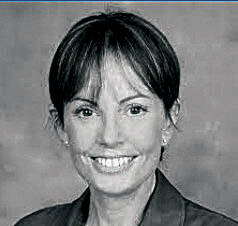With respect to Isabella Ariel Kalua’s death, we are all complicit. Still.
In 2014, reporter Rob Perez wrote a series of four consecutive front-page articles in the Star-Advertiser on tragedies that had resulted in serious injuries and deaths of a number of children; many in state custody. There was expected community outrage, but nothing has changed.
Child Welfare Services (CWS) could not fill its positions then, or now. As reported last week, more than 25% of worker positions are unfilled. In 2018 Hawaii ranked 50th among the states in terms of number of workers per child population. We would still be 50th if all positions were filled. It does not take a Nobel Prize in Economics to realize that there are solutions that include raising wages or reclassifying to higher levels positions that are extraordinarily complicated, challenging, emotionally draining, and sometimes dangerous.
When the 2014 articles appeared, I asked a friend, with a successful CWS career, if this would be an opportunity to request additional funding from the state Legislature. The response was that it wouldn’t do any good. Also, CWS couldn’t fill the positions it already had, so why tie up more money? The issue is using money wisely to stop the cycle of learned helplessness.
But this is not a CWS issue. It is an issue about whether Hawaii really cares about its children. When parents are unable, for whatever reason, to provide appropriate care for their children, it becomes the state’s task to act in loco parentis. CWS is only one of a many vital pieces assuring children are safe involving the police, judiciary, guardians ad litem, consulting psychologists and other organizations. Also important are the eyes of daycare providers, teachers, health care providers, relatives and neighbors.
Exhortations to do better are not enough. Fortunately, there are occasional shining examples of action, such as when the community came together and compelled the Legislature to fund additional social work positions for CWS on the Big Island after the tragic starvation death of Shaelynn Lehano-Stone.
This is an issue for the entire community that should not be shouldered by several agencies or the current legislative approach. It is well established that poverty is a major risk factor for child abuse. Therefore, responsible community members should support bills that combat poverty through increases to the minimum wage and taxes on products detrimental to health as well as other taxes that can be used for programs shown to break cycles of poverty and abuse. If we truly care about children, we should be willing to pay to keep them safe and help them thrive.
It is time to look at our entire system of caring for at-risk infants and children. Waiting for two or three agencies to review existing policies is insufficient. A statewide commission should be appointed to investigate this sentinel event as a launching point to make actionable recommendations for addressing the care of our vulnerable keiki. It should include government and nongovernment stakeholders as well as consultants from other states.
Most children in our state are currently loved and cherished. If we genuinely value our children, then all should have this experience.
Maureen Shannon, of Kailua, is a recently retired professor and Frances A. Matsuda Endowed Chair in Women’s Health from the University of Hawaii-Manoa School of Nursing.

